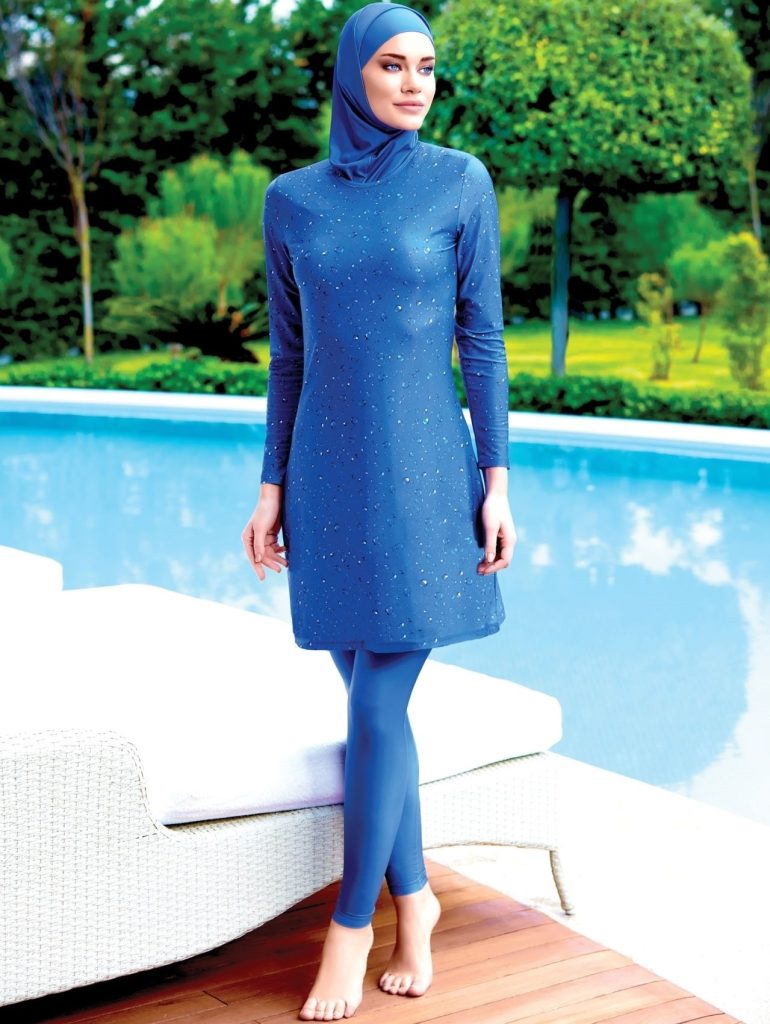
The burkini, a full-body swimsuit designed for Muslim women who want to maintain their modesty while swimming, has emerged as a new market segment in the beauty industry. The burkini has created a demand for beauty products that cater to Muslim women’s needs, including waterproof and long-lasting makeup and skincare products. In this article, we will explore the issue of the burkini and the beauty industry, examining the challenges faced by Muslim women and the opportunities for beauty brands to tap into this growing market segment.
The challenges faced by Muslim women
Muslim women face multiple challenges when it comes to beauty and self-care. They may feel pressure to conform to certain beauty standards, which can be difficult to reconcile with their religious and cultural values. Muslim women are often subject to stereotypes and discrimination based on their religious dress and appearance, which can lead to feelings of self-consciousness and shame.
In addition, Muslim women who wear the burkini may face specific challenges in finding beauty products that cater to their needs. For example, waterproof makeup and skincare products are essential for Muslim women who want to participate in water sports and swimming, but may be difficult to find in the traditional beauty market.
The burkini and the beauty industry
The burkini has created a new market segment in the beauty industry, with Muslim women demanding beauty products that cater to their needs. Beauty brands are starting to recognize this opportunity and are developing products that are specifically aimed at Muslim women who wear the burkini.
Waterproof and long-lasting makeup and skincare products are essential for Muslim women who wear the burkini, and beauty brands are starting to offer these products. Brands such as Inglot and Estée Lauder have launched waterproof makeup products that are suitable for swimming and water sports, while Halal cosmetic brands such as Wardah and Sariayu cater specifically to Muslim women’s needs.
Beauty brands are also recognizing the importance of inclusivity and diversity in their marketing and advertising. Many beauty brands are featuring Muslim women in their advertising campaigns, promoting inclusivity and representation in the beauty industry. This shift towards inclusivity and diversity is creating a more equitable and inclusive beauty industry, and is helping to break down stereotypes and discrimination.
Opportunities for beauty brands
The burkini has created a new market segment in the beauty industry, providing opportunities for beauty brands to tap into this growing market. Muslim women who wear the burkini have specific beauty needs, and beauty brands that cater to these needs have the potential to tap into a huge market.
In addition, the burkini is promoting inclusivity and diversity in the beauty industry, and beauty brands that embrace these values are likely to resonate with customers. Brands that feature Muslim women in their advertising campaigns, and that promote a diverse range of beauty standards, are likely to attract a wider customer base and create a more inclusive and equitable beauty industry.
Furthermore, the burkini has the potential to create a new aesthetic in the beauty industry, with Muslim women promoting their own unique beauty standards. Muslim women who wear the burkini have their own unique style, and beauty brands that recognize and cater to this style have the potential to create a new aesthetic in the beauty industry.
Conclusion
The burkini and the beauty industry is a complex issue that involves challenges, opportunities, and resistance. Muslim women face multiple challenges when it comes to beauty and self-care, including pressure to conform to certain beauty standards and discrimination based on their religious dress. However, the burkini has created a new market segment in the beauty industry, providing opportunities for beauty brands to tap into this growing market. The burkini is also promoting inclusivity and diversity in the beauty industry, creating a more equitable and inclusive industry that embraces different beauty standards and identities. Beauty brands that recognize and cater to Muslim women’s needs have the potential to tap into a huge market and create a more diverse and inclusive beauty industry.

